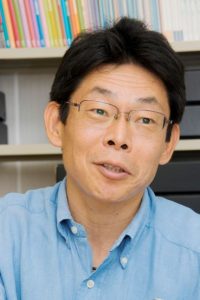 Jun Akamine is Professor of Human Ecology, Institute for the Study of Global Issues, Graduate School of Social Sciences, Hitotsubashi University, Japan. Akamine is interested in whaling issues in Japan and he investigates roles of whaling museums inheriting local histories in Japan including oral history collection. His book ‘Conserving Biodiversity for Cultural Diversity: A Multi-sited Ethnography of Sea Cucumber Wars’ was published by Tokai University Press (2013). He was President of the Japan Oral History Association and is currently a board member of Society of Japanese Food Studies.
Jun Akamine is Professor of Human Ecology, Institute for the Study of Global Issues, Graduate School of Social Sciences, Hitotsubashi University, Japan. Akamine is interested in whaling issues in Japan and he investigates roles of whaling museums inheriting local histories in Japan including oral history collection. His book ‘Conserving Biodiversity for Cultural Diversity: A Multi-sited Ethnography of Sea Cucumber Wars’ was published by Tokai University Press (2013). He was President of the Japan Oral History Association and is currently a board member of Society of Japanese Food Studies.
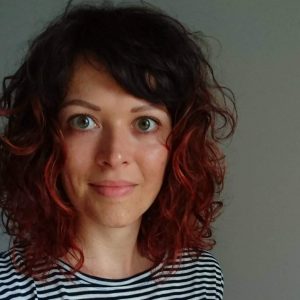 Esther Breithoff is a UKRI Future Leaders Fellow and Lecturer in Contemporary Archaeology and Heritage at the Department of History, Classics and Archaeology at Birkbeck, University of London. She previously held postdoctoral positions at UiT The Arctic University of Norway and UCL Institute of Archaeology. Her research spans the fields of Contemporary Archaeology and Critical Heritage Studies and has ranged across a number of different topics—including war, natural and cultural heritage, nuclear and petroleum industries, dictatorships and biobanking—but traces a common set of interests in the relationships between conflicts, resources, recycling and rights across the human/non-human divide in the Anthropocene era. Her research in Laos, which forms part of her UKRI FLF, focuses on the recycling of conflict material culture, and the transformation of villages into living “open-air” museums.
Esther Breithoff is a UKRI Future Leaders Fellow and Lecturer in Contemporary Archaeology and Heritage at the Department of History, Classics and Archaeology at Birkbeck, University of London. She previously held postdoctoral positions at UiT The Arctic University of Norway and UCL Institute of Archaeology. Her research spans the fields of Contemporary Archaeology and Critical Heritage Studies and has ranged across a number of different topics—including war, natural and cultural heritage, nuclear and petroleum industries, dictatorships and biobanking—but traces a common set of interests in the relationships between conflicts, resources, recycling and rights across the human/non-human divide in the Anthropocene era. Her research in Laos, which forms part of her UKRI FLF, focuses on the recycling of conflict material culture, and the transformation of villages into living “open-air” museums.
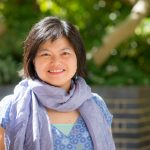 Yunci Cai is Lecturer in Museum Studies and Co-Programme Director of MA/MSc/PGDip in Heritage and Interpretation (Distance Learning) programme at the University of Leicester, United Kingdom. She is interested in the cultural politics of private museums in Asia, particularly those in Malaysia and Singapore. Her monograph Staging Indigenous Heritage: Instrumentalisation, Brokerage and Representation in Malaysia (Routledge 2020) explores the cultural politics of four Indigenous cultural villages in Malaysia. She has a PhD in Museum and Heritage Studies and an MA in Museum Studies with Distinction, both from the UCL Institute of Archaeology.
Yunci Cai is Lecturer in Museum Studies and Co-Programme Director of MA/MSc/PGDip in Heritage and Interpretation (Distance Learning) programme at the University of Leicester, United Kingdom. She is interested in the cultural politics of private museums in Asia, particularly those in Malaysia and Singapore. Her monograph Staging Indigenous Heritage: Instrumentalisation, Brokerage and Representation in Malaysia (Routledge 2020) explores the cultural politics of four Indigenous cultural villages in Malaysia. She has a PhD in Museum and Heritage Studies and an MA in Museum Studies with Distinction, both from the UCL Institute of Archaeology.
Sidney Cheung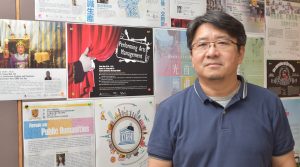 is professor of Anthropology at The Chinese University of Hong Kong. I began my anthropological research in Japan focusing on the socio-political relations between the Ainu people and Japanese. Coming back to Hong Kong in 1990s, I had my research interest in various issues in the New Territories: the changing meanings of both historical monuments in local villages and the land use of coastal community, and my research covered foodways, agriculture, cultural tourism and incense practice. I think heritage studies should not stay only as a kind of historical understanding of customs and local traditions, but should be investigated with a critical approach so that our society can benefit from the awareness of heritage with its new values as well as a kind of human treasure. Regarding the development of private museum, I would like to investigate how and why the idea of being “private” was developed and what that kind of private space has been promoted to the public.
is professor of Anthropology at The Chinese University of Hong Kong. I began my anthropological research in Japan focusing on the socio-political relations between the Ainu people and Japanese. Coming back to Hong Kong in 1990s, I had my research interest in various issues in the New Territories: the changing meanings of both historical monuments in local villages and the land use of coastal community, and my research covered foodways, agriculture, cultural tourism and incense practice. I think heritage studies should not stay only as a kind of historical understanding of customs and local traditions, but should be investigated with a critical approach so that our society can benefit from the awareness of heritage with its new values as well as a kind of human treasure. Regarding the development of private museum, I would like to investigate how and why the idea of being “private” was developed and what that kind of private space has been promoted to the public.
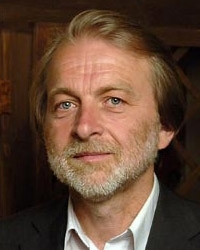 Pieter ter Keurs is professor of Museums, Collections and Society at the faculties of Humanities and Archaeology of Leiden University, the Netherlands. As an anthropologist he did fieldwork in Papua New Guinea and Indonesia. Previously he was a curator at the National Museum of Ethnology (now World Cultures) in Leiden and head of Collections and Research at the National Museum of Antiquities. Ter Keurs is also Academic Director of the LDE Centre for Global Heritage and Development. He was project leader of several museum-based cooperation projects and he made exhibitions in Leiden, Amsterdam, Paris, Jakarta and Tunis.
Pieter ter Keurs is professor of Museums, Collections and Society at the faculties of Humanities and Archaeology of Leiden University, the Netherlands. As an anthropologist he did fieldwork in Papua New Guinea and Indonesia. Previously he was a curator at the National Museum of Ethnology (now World Cultures) in Leiden and head of Collections and Research at the National Museum of Antiquities. Ter Keurs is also Academic Director of the LDE Centre for Global Heritage and Development. He was project leader of several museum-based cooperation projects and he made exhibitions in Leiden, Amsterdam, Paris, Jakarta and Tunis.
In my research I have often focused on collecting practices in colonial situations and the complex role National Museums played in these practices. My interest in private museums is fed by a curiosity around the question of how different private museums actually are. Power relations are just as important for private museums as they were and are for National Museums. Do private museums make the difference?
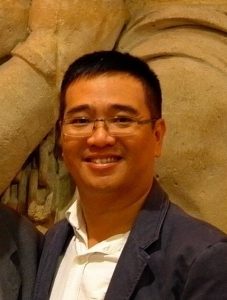
Nguyen Hai Ninh is Vice-Head of the Museum Management Bureau, Department of Cultural Heritage (DCH) and he coordinates the mission of providing support and supervision to museums, including following up Vietnam museums’ activities in international cooperation. Ninh also is ICOM Vietnam’s Secretary. Ninh holds an MA in museum design (2005), and a BA in museum design (1998), both from Hanoi Industrial Fine Art University.
Before joining DCH, Ninh spent five years working for a famous museum designer group, who designed numerous of museums in Vietnam. After joining DCH in 2003, he has assisted numerous museums in exhibition design, education programmes and in staff capacity building. Ninh’s varied background in museum design, curator and new museum project, has provided the perfect foundation for building law and policy for museum development in Vietnam. Ninh received the Medal of National Labour by the Lao People’s Democratic Republic in 2002.
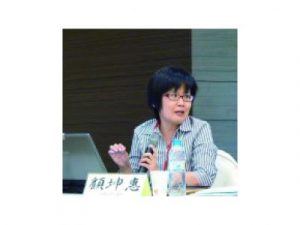
Kun-Hui Ku is an anthropologist working at the Institute of Anthropology, National Tsing Hua University, Taiwan and is the founding convener of Center for World Austronesia and Indigenous People (CWAIP). She specializes in Austronesian Taiwan, especially the Paiwan, on topics such as conversion to Christianity, local politics, historical narratives and memory, material culture and law. She has published on various topics and co-edited two special issues: Hierarchy and Egalitarianism in Austronesia (2019) and Austronesian Personal Naming Systems (2016). She has helped create a new English program on Austronesian Studies at IOA, NTHU.
She is interested in the changing relationship between indigenous peoples and the museums, public or private, especially the recent burgeoning local run museums under county office and how corporations run private ethnic museums responding to this trend.
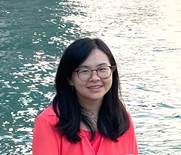 Yu Luo has been working at the City University of Hong Kong as an Assistant Professor in the Department of Chinese and History from 2017 to 2021. She will be joining the University of Puget Sound as the Suzanne Wilson Barnett Chair of Contemporary China Studies in the Department of Sociology and Anthropology and the Asian Studies Program starting from Fall 2021. Her publications appeared in Modern China, Social Anthropology, Verge: Global Studies in Asias, Social and Cultural Geography, and International Journal of Heritage Studies, and she contributed to the Handbook on Ethnic Minorities in China. Yu holds a Ph.D. in sociocultural anthropology from Yale University, and she was a 2016-2017 Postdoctoral Fellow at the Center for Chinese Studies, University of California Berkeley. Yu is interested in the proliferation of ethnic minority museum collections in southwest China and the increasing affinity between public-sector museums and private-sector heritage tourist attractions.
Yu Luo has been working at the City University of Hong Kong as an Assistant Professor in the Department of Chinese and History from 2017 to 2021. She will be joining the University of Puget Sound as the Suzanne Wilson Barnett Chair of Contemporary China Studies in the Department of Sociology and Anthropology and the Asian Studies Program starting from Fall 2021. Her publications appeared in Modern China, Social Anthropology, Verge: Global Studies in Asias, Social and Cultural Geography, and International Journal of Heritage Studies, and she contributed to the Handbook on Ethnic Minorities in China. Yu holds a Ph.D. in sociocultural anthropology from Yale University, and she was a 2016-2017 Postdoctoral Fellow at the Center for Chinese Studies, University of California Berkeley. Yu is interested in the proliferation of ethnic minority museum collections in southwest China and the increasing affinity between public-sector museums and private-sector heritage tourist attractions.
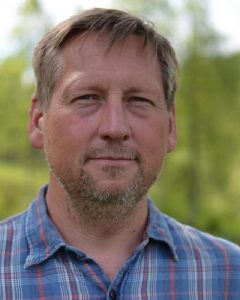 Knut Rio is an anthropologist who has worked extensively in Vanuatu on a range of issues including gift exchange, sorcery, and Christianity. He has also worked on the ethnographic collections at the University Museum of Bergen and holds a wider interest in colonial history, leading him to write about Norwegian colonialists in Hawai’i and making two exhibitions on the relation between European centres and colonial peripheries.
Knut Rio is an anthropologist who has worked extensively in Vanuatu on a range of issues including gift exchange, sorcery, and Christianity. He has also worked on the ethnographic collections at the University Museum of Bergen and holds a wider interest in colonial history, leading him to write about Norwegian colonialists in Hawai’i and making two exhibitions on the relation between European centres and colonial peripheries.
More recently he has taken up an interest in the concept of ‘wealth’, explored through his involvement in the ERC Advanced Grant project ‘Egalitarianism: Forms, Processes, Comparison’. Wealth is treated as a creation of human reproduction which is appropriated and submitted to pulls by the state, the market and communities. His primary angle into this process has to do with cultural heritage as a particularly potent form of wealth. He is exploring how cultural heritage management plays out differently in different parts of the world, such as through the elitist appropriation of cultural heritage or ideas of commoning.
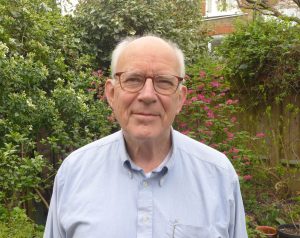 Michael Rowlands is Emeritus Professor of Anthropology and Material Culture Studies at University College London. His research interests include the theorisation and conceptualisation of cultural heritage and material culture. He has been a long-time advocate of the synthesis of anthropology and archaeology. He has conducted fieldwork research on the histories and development of postcolonial museums in West Africa (Cameroon, Liberia, Mali), and currently he is doing fieldwork on heritage practices in China funded by the Leverhulme Foundation. Recently, Professor Rowlands has been a Visiting Professor at the Universities of Cape Town, Gothenburg and Peking University.
Michael Rowlands is Emeritus Professor of Anthropology and Material Culture Studies at University College London. His research interests include the theorisation and conceptualisation of cultural heritage and material culture. He has been a long-time advocate of the synthesis of anthropology and archaeology. He has conducted fieldwork research on the histories and development of postcolonial museums in West Africa (Cameroon, Liberia, Mali), and currently he is doing fieldwork on heritage practices in China funded by the Leverhulme Foundation. Recently, Professor Rowlands has been a Visiting Professor at the Universities of Cape Town, Gothenburg and Peking University.
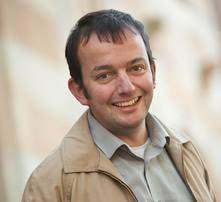 Graeme Were is the chair and professor of Anthropology in the Department of Anthropology and Archaeology at the University of Bristol. He has held positions at the University of Queensland, University College London, the British Museum, and Goldsmiths College London, and joined Bristol in 2018. His research interests include museum anthropology, digital heritage and material culture studies, and he has a regional specialism in Papua New Guinea and Vietnam.
Graeme Were is the chair and professor of Anthropology in the Department of Anthropology and Archaeology at the University of Bristol. He has held positions at the University of Queensland, University College London, the British Museum, and Goldsmiths College London, and joined Bristol in 2018. His research interests include museum anthropology, digital heritage and material culture studies, and he has a regional specialism in Papua New Guinea and Vietnam.
He is currently writing a new monograph on the memory politics of museums and heritage in Vietnam, having worked on several projects with the Vietnam Ministry of Culture, Sport and Tourism. His interest in private museums stems from the current boom in museum building in Asia and the impact this is having on historical memory, especially in one-party states like Vietnam and China.
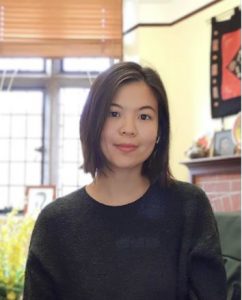 Juan Zhang is Lecturer of Social Anthropology at the Department of Anthropology and Archaeology, University of Bristol. Her broad research interests include transnational mobilities and borders in Asia with a particular focus on the transnational circulations of bodies, ideas and objects. She joins the research network with a particular interest on heritage imaginations within the East Asian pop cultural waves (especially the K- and M-waves), how “cultural heritage” claims have been seized to fuel nationalistic animosities across borders, and how the popular language of “stealing” (tou 偷) characterises a rising sense of heritage nationalism among young pop culture consumers in transnational contexts. Juan has published in journals including Environment & Planning D, Environment & Planning A, Gender Place & Culture, Pacific Affairs, Mobilities among others. She co-edited a book The Art of Neighbouring: Making Relations Across China’s Borders with Amsterdam University Press, 2017.
Juan Zhang is Lecturer of Social Anthropology at the Department of Anthropology and Archaeology, University of Bristol. Her broad research interests include transnational mobilities and borders in Asia with a particular focus on the transnational circulations of bodies, ideas and objects. She joins the research network with a particular interest on heritage imaginations within the East Asian pop cultural waves (especially the K- and M-waves), how “cultural heritage” claims have been seized to fuel nationalistic animosities across borders, and how the popular language of “stealing” (tou 偷) characterises a rising sense of heritage nationalism among young pop culture consumers in transnational contexts. Juan has published in journals including Environment & Planning D, Environment & Planning A, Gender Place & Culture, Pacific Affairs, Mobilities among others. She co-edited a book The Art of Neighbouring: Making Relations Across China’s Borders with Amsterdam University Press, 2017.
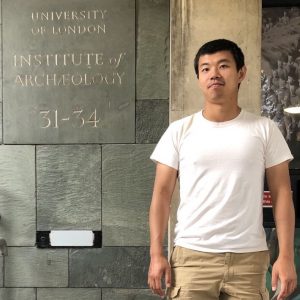 Lisheng Zhang is a postdoctoral fellow with the Department of Sociology and Anthropology, Peking University. His PhD, undertaken at UCL Institute of Archaeology, investigates Chinese private heritage entrepreneurship through an ethnographic case study of the Jianchuan Museum Complex, China’s most high-profile nonstate museum. From 2018 to 2020, he worked as research assistant for the UK-China collaborative project Craft China: (Re)making Ethnic Heritage in China’s Creative Economy, funded by the AHRC and Newton Fund.
Lisheng Zhang is a postdoctoral fellow with the Department of Sociology and Anthropology, Peking University. His PhD, undertaken at UCL Institute of Archaeology, investigates Chinese private heritage entrepreneurship through an ethnographic case study of the Jianchuan Museum Complex, China’s most high-profile nonstate museum. From 2018 to 2020, he worked as research assistant for the UK-China collaborative project Craft China: (Re)making Ethnic Heritage in China’s Creative Economy, funded by the AHRC and Newton Fund.